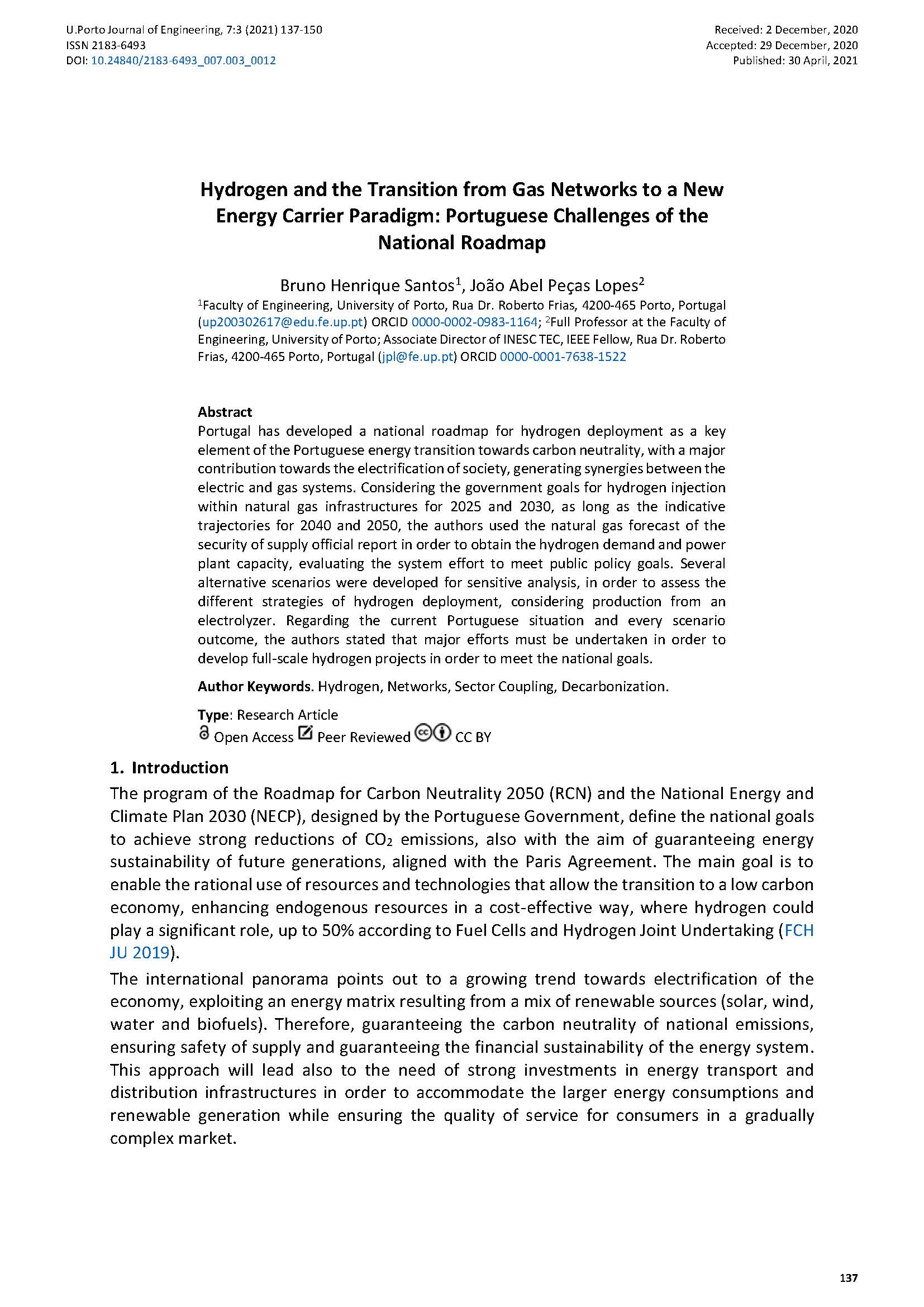Hydrogen and the Transition from Gas Networks to a New Energy Carrier Paradigm Portuguese Challenges of the National Roadmap
Main Article Content
Abstract
Portugal has developed a national roadmap for hydrogen deployment as a key element of the Portuguese energy transition towards carbon neutrality, with a major contribution towards the electrification of society, generating synergies between the electric and gas systems. Considering the government goals for hydrogen injection within natural gas infrastructures for 2025 and 2030, as long as the indicative trajectories for 2040 and 2050, the authors used the natural gas forecast of the security of supply official report in order to obtain the hydrogen demand and power plant capacity, evaluating the system effort to meet public policy goals. Several alternative scenarios were developed for sensitive analysis, in order to assess the different strategies of hydrogen deployment, considering production from an electrolyzer. Regarding the current Portuguese situation and every scenario outcome, the authors stated that major efforts must be undertaken in order to develop full-scale hydrogen projects in order to meet the national goals.
Downloads
Article Details

This work is licensed under a Creative Commons Attribution 4.0 International License.
Authors who publish with this journal agree to the following terms:
- Authors retain copyright and grant the journal right of first publication with the work simultaneously licensed under a Creative Commons Attribution License that allows others to share the work with an acknowledgement of the work's authorship and initial publication in this journal.
- Authors grant the journal the rights to provide the article in all forms and media so the article can be used on the latest technology even after publication and ensure its long-term preservation.
- Authors are able to enter into separate, additional contractual arrangements for the non-exclusive distribution of the journal's published version of the work (e.g., post it to an institutional repository or publish it in a book), with an acknowledgement of its initial publication in this journal.
- Authors are permitted and encouraged to post their work online (e.g., in institutional repositories or on their website) prior to and during the submission process, as it can lead to productive exchanges, as well as earlier and greater citation of published work (See The Effect of Open Access).

